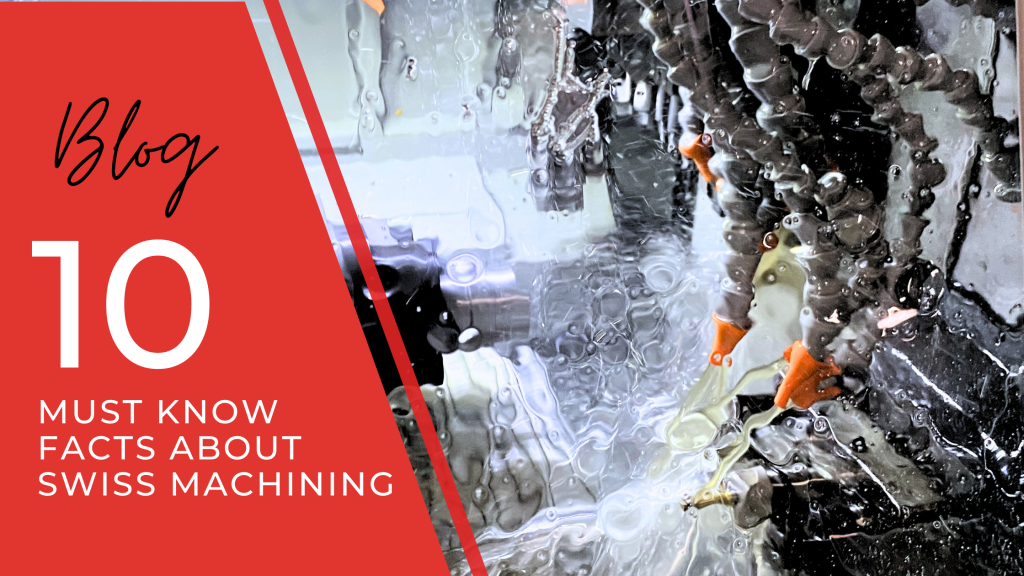
If you’re in the world of machining, then you know that cost, quality, and precision are paramount. It’s a balancing act that requires expertise, top-of-the-line equipment, and a lot of know-how. But what if there was a machine that could do it all? Well, Swiss machining comes pretty close. In this blog post, we’ll take a closer look at this innovative technology, and we’ll explore the 10 things you need to know about Swiss-style turning machines. Whether you’re a seasoned machinist or just starting out, there’s something here for everyone. So, let’s dive in
- Swiss machining is ideal for small and complex parts: This technique is known for its ability to produce high-quality parts with tight tolerances, making it an excellent choice for components that require intricate geometries and precise measurements.
- Swiss machining allows for the production of parts that are complete in a single operation: In essence, this means that parts can be machined from start to finish without the need for secondary operations, this results in faster production times and reduced costs.
- Swiss machines are designed to run autonomously, with minimal operator intervention: Once the machine is programmed and set up, it can run for extended periods of time without requiring constant supervision, saving precious time.
- Swiss machining can handle a wide range of materials, including aluminum, brass, copper, titanium, and stainless steel. This versatility makes it a popular choice in industries such as aerospace, medical, and automotive.
- Swiss machining uses a 100% cutting oil as a coolant, which provides better tool life and improved part quality compared to traditional coolant methods.
- Swiss machines use a guide bushing to support the workpiece during machining: This guide bushing ensures that the part remains stable during machining, resulting in improved accuracy and surface finish.
- Swiss machining can produce parts with a diameter as small as 0.01 inches: This makes it an ideal choice for manufacturing miniature components that are difficult to produce with traditional machining techniques.
- Swiss machining is highly repeatable, meaning that parts can be produced with consistent quality and accuracy. This is essential in industries where precision is critical, such as medical device manufacturing.
- Swiss machining is a cost-effective solution for high-volume production: Due to its ability to produce complete parts in a single operation, Swiss machining can significantly reduce production times and costs.
- Swiss machining can improve your competitiveness in the market. By leveraging the speed, precision, and efficiency of Swiss machining, you can increase your production output, reduce your lead times, and improve your bottom line.
Swiss machining is an advanced machining technique that offers numerous benefits over traditional machining methods. From its ability to produce high-quality parts with tight tolerances to its efficiency in high-volume production, Swiss machining can help you take your manufacturing capabilities to the next level. If you are looking for a reliable partner for Swiss machining services, United Tool has the experience and expertise to meet your needs. With over 60 years of experience, we specialize in providing superior value throughout the manufacturing process to meet your exact specifications. From raw material procurement to precision CNC machining, we offer customized stocking and Kan-Ban programs for just-in-time requirements and provide logistical solutions for worry-free delivery. Come visit our facilities today or give us a call at (262) 347-2004 to learn more!
